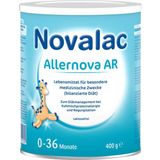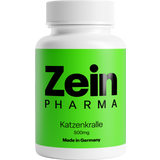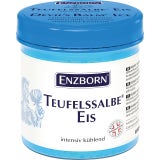Plant Proteins or Animal Proteins? Which is "Better"?
Protein is an important macronutrient, but not all sources of protein are created equal. When it comes to protein, there are two major groups of protein sources that the human body can use: animal proteins and plant proteins. Animal proteins are complete proteins, meaning: they contain all the essential amino acids we need in our diet. Plant proteins, however, are often incomplete sources of protein, i.e. they do not contain all the essential amino acids our bodies require. Plant proteins do offer other benefits, since a diet rich in animal-based amino acids increases the risk of heart disease and strokes.
What Exactly is Protein?
Protein is found everywhere in the body - in the muscles, bones, skin, hair and virtually every other body part or tissue. Protein makes enzymes that start many chemical reactions, as well as haemoglobin, which carries oxygen in your blood.
It's All About the Amino Acids
Proteins consist of more than twenty basic building blocks, also known as: amino acids. Since we can't store amino acids in our bodies, our bodies make them in two different ways: either from scratch or by modifying other amino acids. There are nine amino acids, that the body cannot produce. These are known as "essential amino acids". These essential amino acids must be ingested through our food.
As mentioned, animal proteins are complete proteins. They provide all nine essential amino acids. Good examples of animal proteins are: eggs, pork, poultry, beef or dairy products. Some plant-based proteins are also complete proteins, like quinoa or soy products. Most plant-based protein sources, however, are incomplete, but since each source of plant-based protein contains a different composition of the nine amino acids, you can simply eat a variety of foods to still get all nine.
It's About the Big Picture
When we eat proteins, we also eat everything that goes with them: the various fats, fibre, sodium, and more that these foods are composed of. These additional nutrients make the difference when we are evaluating the health values of the protein source. For example, animal proteins contain saturated fatty acids that have a negative effect on the cardiovascular system if we consume too much of them, so we need to make sure we consume them in moderation.
Benefits of Plant Proteins
The types of protein you eat can be more important than the amount of protein that you eat. Plant-based protein provides many nutrients, fibre, and antioxidants that contribute to your overall health. Well-known benefits of a plant-based diet include a lower risk of heart disease, cancer, obesity, or strokes, among other benefits.
Benefits of Animal Proteins
Animal protein also has its health benefits. People who eat mostly low-fat animal protein like poultry and fish, have a lower risk of type 2 diabetes, a lower risk of heart disease, and a lower risk of colon, stomach, pancreatic and prostate cancer (compared with people who eat lots of red meat).
Possible Problems with a Plant-based Diet
To reap the benefits of a plant-based diet, you need to eat a wide variety of healthy plant-based foods. A plant-based diet that is high in processed foods and added sugars does not provide the right nutrients or enough nutrients. Above all, make sure you have a good supply of zinc, vitamin B12, protein, calcium and vitamin D if you eat a purely plant-based diet.
Risks From Eating Too Much Animal Protein
Studies show that eating both unprocessed and processed red meat is associated with shorter lifespans.
Protein and the Planet
Just as different foods can have different effects on our health, they also have different effects on the environment. Agriculture is one of the main causes of greenhouse gases worldwide, but not every food produces the same amount of CO2.
The production of animal-based foods generally causes higher greenhouse gas emissions than the production of plant-based foods. Dairy products and red meat in particular stand out due to their disproportionately emissions. Here's an example: 1 kg of lamb produces five times more greenhouse gas emissions than 1 kg of chicken, and about 30 times more than the production of 1 kg of lentils.
This means that the amount of animal protein that we consume has a big impact on our environmental footprints.
Summary
Eating healthy sources of protein, such as beans, nuts, fish, or poultry, instead of red meat and processed meat can reduce your risk of various diseases and could contribute to a longer life. In the end, it's more important to eat a balanced, varied diet, than it is to focus on whether we eat plant proteins or animal proteins.
Latest reviews
-
 5.0 (2)
5.0 (2)Novalac Allernova AR, 400 g
Bestseller- 0 - 36 months
- With many vitamins
- Lactose-free formulation
€ 20,99 (€ 52,48 / kg)Delivery by April 23
-
 4.5 (11)
4.5 (11)ZeinPharma Cat's Claw Capsules 500 mg, 90 capsules
- From the bark of the cat's claw
- Highly active ingredients
- From South America
€ 19,99 (€ 384,42 / kg)Delivery by April 23
-
 5.0 (1)
5.0 (1)ENZBORN Pretty Feet Cream, 75 ml
-6%- Cream-gel consistency
- With urea, hawthorn, jojoba oil & allantoin
- Absorbs quickly & does not stick
€ 5,51 € 5,89 (€ 73,47 / l)Delivery by April 23
-
 5.0 (4)
5.0 (4)ENZBORN Icy Devil's Salve, 200 ml
- Moisturizes
- Cooling & refreshing
- Can be used with insect bites
€ 8,09 (€ 40,45 / l)Delivery by April 23

